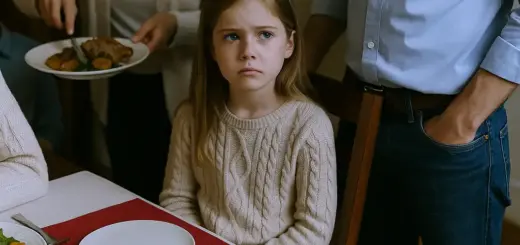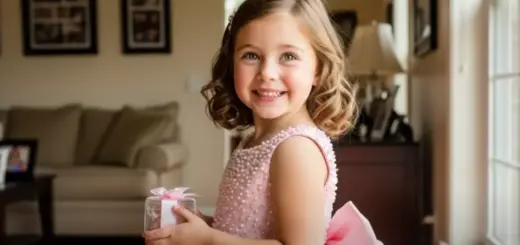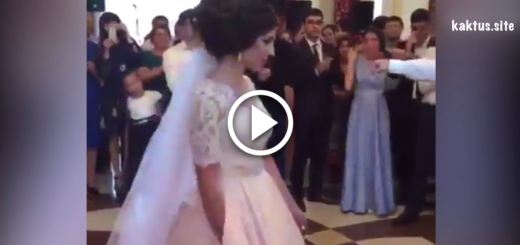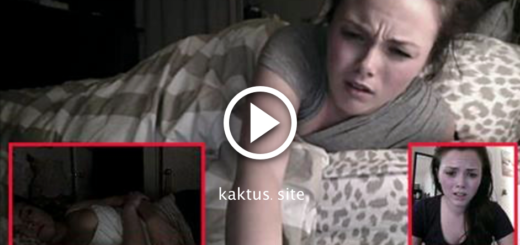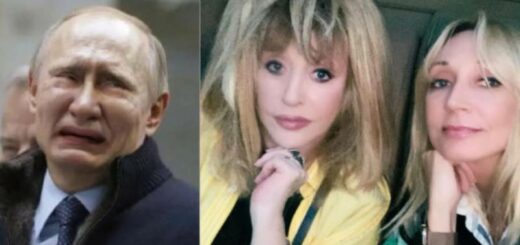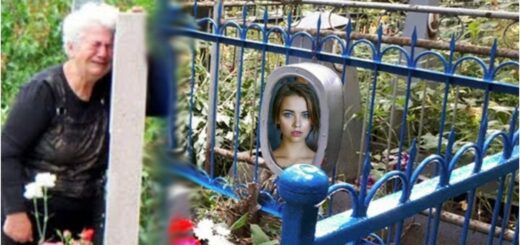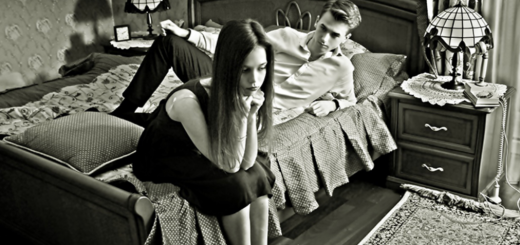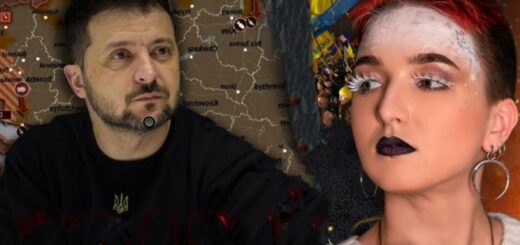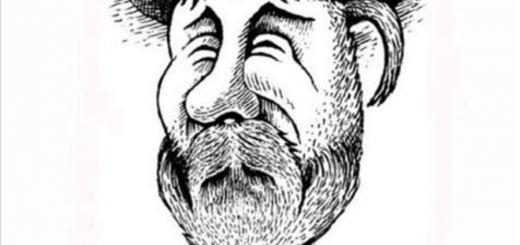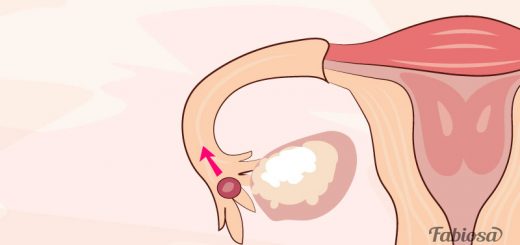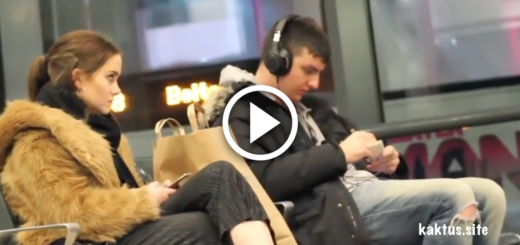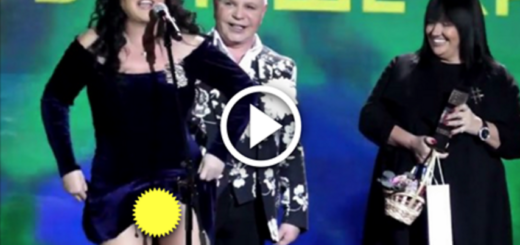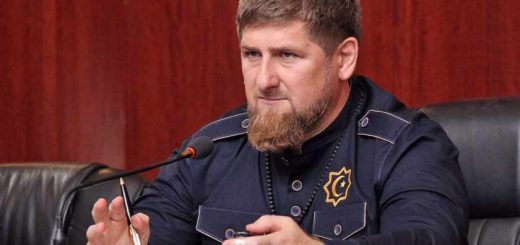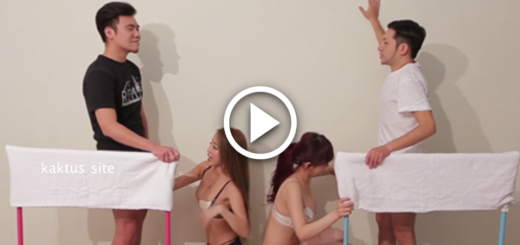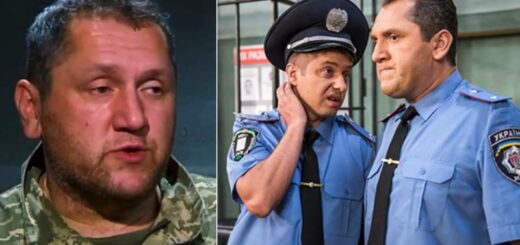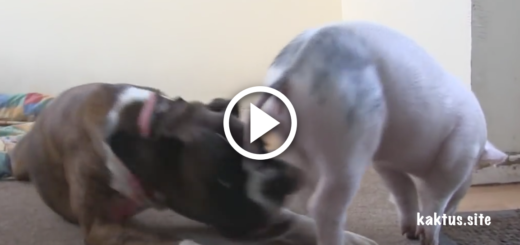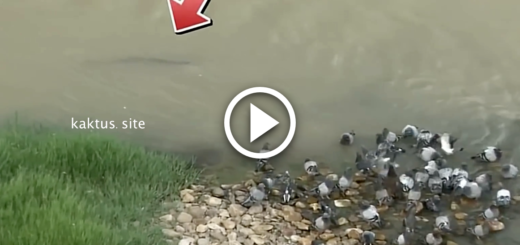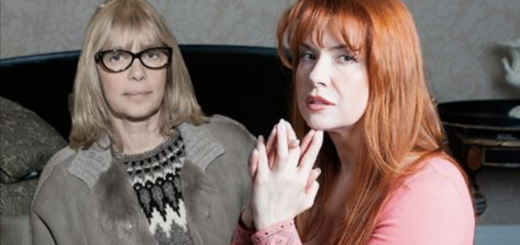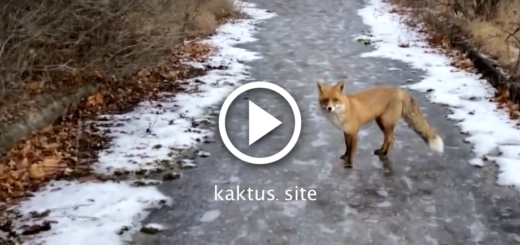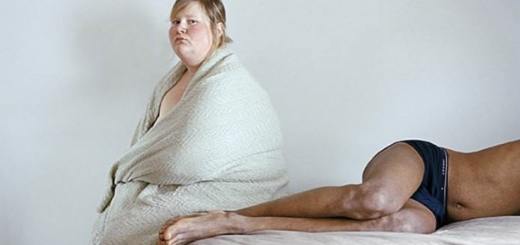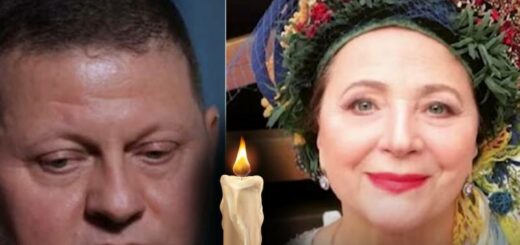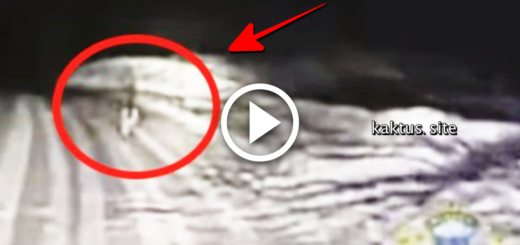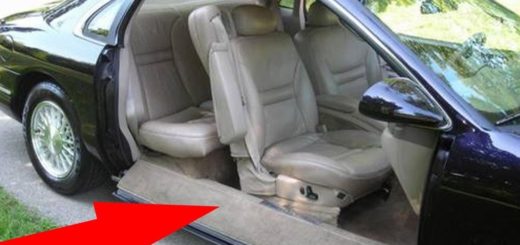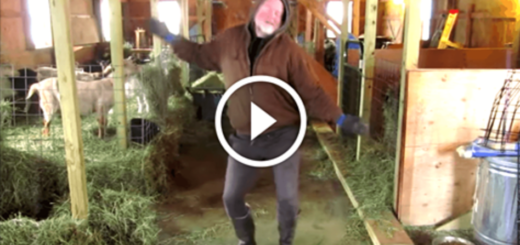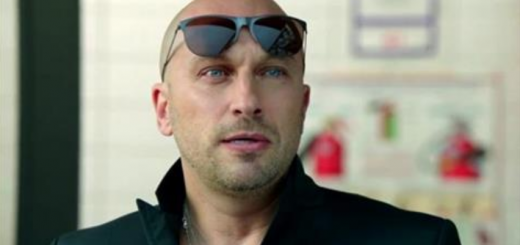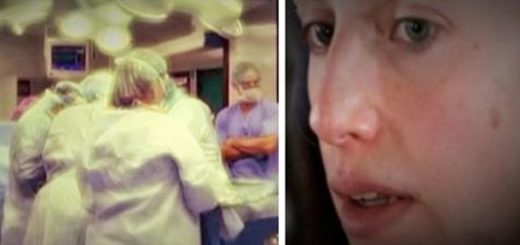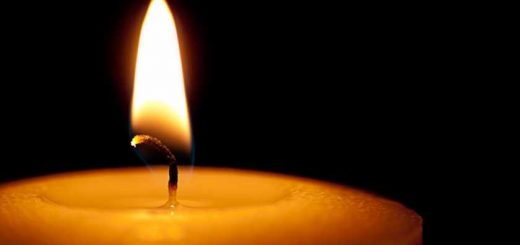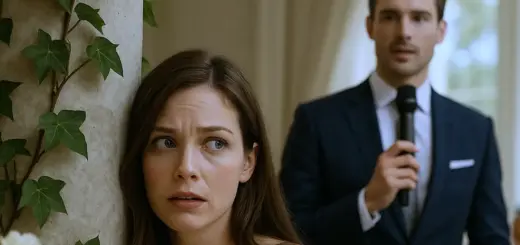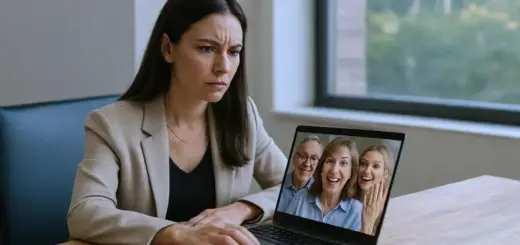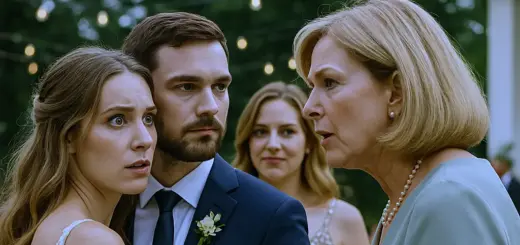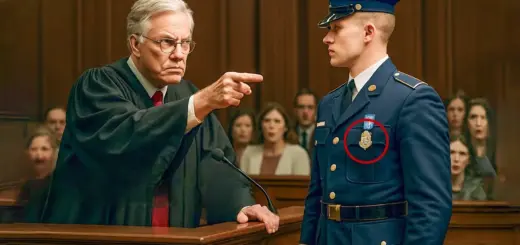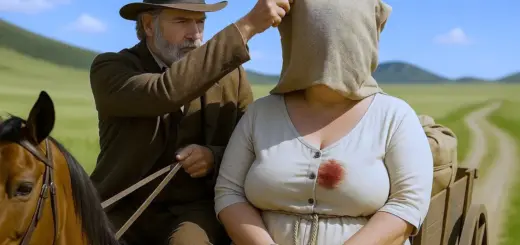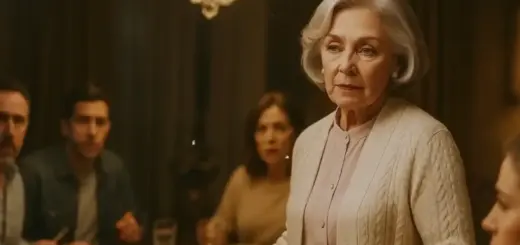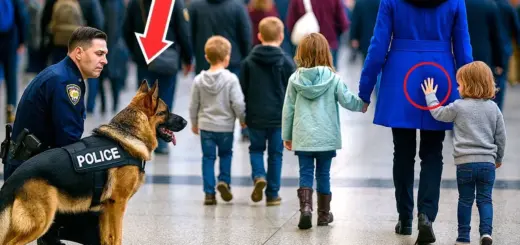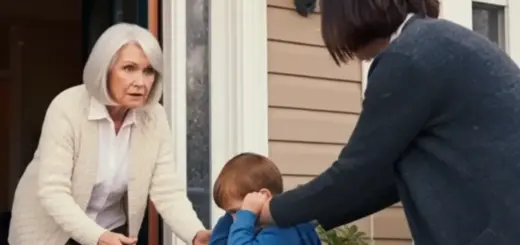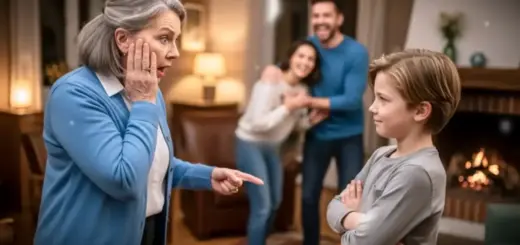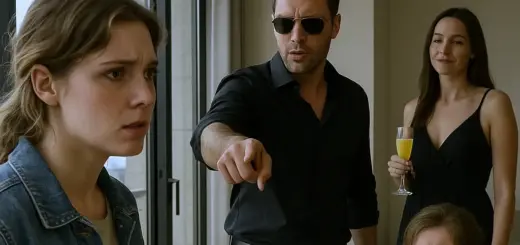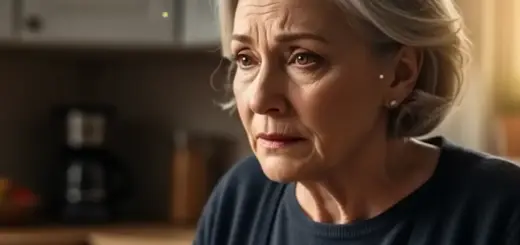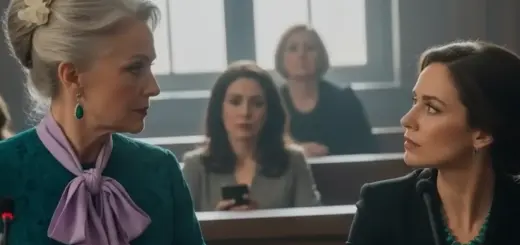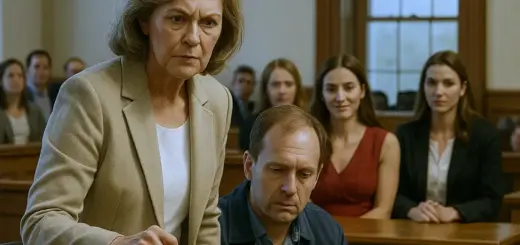«They thought they were clever,» she said, «but Calder’s mistake was thinking appearance mattered more than process. He forged optics. We’ve got law.»
I stared at the papers, my name printed in black ink where he’d tried to erase me.
«You’re still the legal owner of the penthouse,» Linnea confirmed. «They never had it.»
I sat back slowly, breath catching in my throat. Weeks of doubt, isolation, and humiliation, flipped by a few lines on a page. I wasn’t crazy. I wasn’t powerless. I was right.
That evening, I changed clothes, pulled my hair back, and drove to the penthouse one last time. Linnea rode with me. Neither of us spoke much on the way. When we reached the building, I didn’t wait for permission. I walked past the concierge desk, past the polished elevator doors, all the way to the top floor.
Calder opened the door with his usual smirk. «You just can’t quit, can you?»
I held his gaze. «You’re right. Because this was never yours to begin with.»
Linnea stepped beside me, folder in hand. «Effective immediately, this property reverts to its rightful trust holder, Ms. Elowen Keating.» She handed him the legal notice. The seal at the top shimmered under the hallway light.
Inside, I heard a sharp inhale. Sable stood frozen by the fireplace. My mother held a porcelain cup that slipped from her hands and shattered on the marble. And then, behind them, my father. He stood near the hallway entrance, thinner than I remembered, but steady.
«Enough, Calder,» he said. His voice was quiet but final.
For a beat, everything stopped. Even Calder looked shaken. Then he laughed. Not amusement. Desperation. «You think this little paper changes anything?» he snapped. «You think this house, this family, is yours now?»
«No,» I said softly. «But this does.»
I reached into my coat pocket, pulled out my phone, and pressed play. His voice filled the penthouse: «Maybe next time you’ll read the fine print.» The recording from our last meeting, the one he didn’t know I’d made. Every word, every condescending sneer, every threat.
Linnea handed a copy to the city officer who had followed us in. «Coercion. Misrepresentation. We’ll be submitting this as evidence.»
Calder’s smirk vanished. He tried to speak, but nothing came out. My mother stood rooted to the floor, her hands trembling. My sister backed into the wall, mouth tight. For once, she had nothing to say.
I stepped inside and walked toward the hallway where my father stood. He looked at me for the first time in what felt like forever. Really looked. He handed me a folded note, brittle and yellowing with time.
«I left this for you,» he said quietly. «In case I couldn’t…» He didn’t finish.
I opened it. If you’re reading this, it means I couldn’t protect you from them, but you always had something stronger than I ever did. Courage. Use it and forgive us when you can.
My throat tightened. I reached for him, and he hugged me, weak but present. My mother was crying now, silently. I didn’t say much to her, just leaned in and whispered, «You don’t need to ask for forgiveness. Just peace.»
Then I walked to the entry table. The keys were there. The same ones I had handed over weeks ago, now cold and untouched. I didn’t hold them up like some victory. I didn’t smile. I placed them flat on the table. Not as a reclaiming. As a closing.
Behind me, the shattered teacup remained on the floor, its pieces glittering like truth in the hallway light. I turned, met Linnea’s eyes, and nodded. We walked out without looking back.
The sun had begun to set. A soft, warm glow covered the city. Not harsh, just enough. As we stepped onto the sidewalk, Linnea touched my shoulder. «You did it. It’s over.»
I shook my head slowly. «Not yet,» I said. «There’s one thing left I need to do.»
Two weeks passed before I found the right morning. A soft, gold-tinged dawn that didn’t demand anything from me. No courtroom, no confrontation, no mask. Just me.
I drove up to the penthouse alone. No folder in my hand, no plan in my head. The building staff nodded at me politely, the kind of politeness that’s unsure if you’re a client or a ghost. I didn’t stop to explain.
The elevator opened like it remembered me. I stepped out and walked through the stillness. Everything looked the same but felt different. Lighter, emptier, honest.
I made my way to the rooftop where it all began. The breeze carried the faint scent of jasmine. My mother used to plant them in little clay pots, swearing they bloomed better near sunlight. The morning air still smelled like her, even though she hadn’t stepped up here in weeks.
I set the old family Bible down on the table, the one that once held my father’s letter. And next to it, I placed the teacup. It had taken three tries and a lot of epoxy to put it back together. The cracks showed, deep and visible. But it stood, whole in its imperfection, just like me.
«This place was supposed to bring peace,» I whispered, watching the sun peek over the skyline. «Maybe now it finally can.»
I didn’t cry. I didn’t smile. I just stood there with the silence, letting the moment settle.
Later that morning, I met my father at a small park on the east side of town. He was early, seated on a bench beneath an old oak tree. He stood slowly when he saw me, gripping the handle of a worn black cane.
«Still too stubborn to ask for help,» I said gently.
He smiled. «Still too proud to admit I need it.»
We walked a slow lap around the fountain. Neither of us rushed the silence. «Your mother’s seeing someone,» he said finally. «A counselor, a real one. She’s starting to talk.»
I looked at him, waiting.
«She said she thought silence kept the family together.»
I nodded. «It didn’t. It just kept us hurting.»
His eyes welled up, but he blinked them dry. «But you broke it, Elowen. The cycle. You gave us a chance to start again.»
I didn’t answer. I just looped my arm through his and kept walking.
That night, a message lit up my phone. From Sable: I didn’t know what he was capable of. I’m sorry.
I stared at it for a long while, thumb hovering over the screen. I typed out a response, erased it, and typed another. Then I deleted it all.
Some apologies don’t need answers, I thought. And then I blocked her number. Not out of bitterness. Just closure.
A few days later, I returned to the penthouse one last time, this time with Linnea and a notary. I signed the final papers and handed over the documents for its sale. «I’m not keeping it,» I told her.
Linnea raised an eyebrow. «Sure about that?»
I looked around one last time. The sunlight spilled across the marble like it had in the beginning. Warm. Still. «Some homes heal best when you leave them behind.»
She didn’t argue. The proceeds from the sale went into a foundation we created together for women rebuilding their lives after family betrayal. We called it the Quiet Line Fund.
«You turned your pain into purpose,» Linnea said when we finalized the paperwork.
«No,» I replied. «That’s not purpose. That’s survival.» And that felt honest.
My parents moved into a modest one-story house near the edge of town, with a small backyard and room for a garden. My dad replanted tomatoes. My mom started painting again. They live slower now, more truthfully.
We talk every Sunday. We never mention the penthouse. And that’s okay.
My new place is simpler. Bright windows, old books, a small desk in the corner where I do consulting work. On it sits a photo of us, taken the day we moved into the penthouse all those years ago. I barely recognized that version of me. She looked so hopeful, so willing to give everything away for a family that didn’t know how to hold it.
She had no idea she’d have to lose everything to find herself. The keys now rest in a small wooden box on the shelf. A reminder, not a trophy. The teacup sits near the window, still cracked, still standing.
I never did retrieve the Bible from the rooftop. I left it behind, with my father’s letter inside. Some stories are meant to stay where they belong.
They say forgiveness sets you free. Maybe it does. But for me, freedom began the moment I stopped waiting for them to understand and chose to understand myself. I gave them a home, but I built my peace with my own hands.

